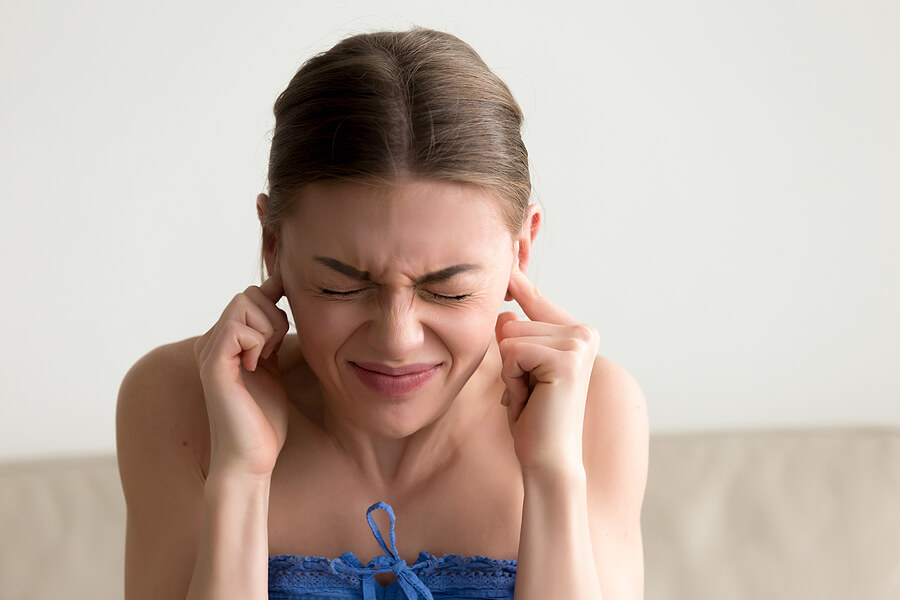
Understanding the Symptoms of Tinnitus
Tinnitus is a condition that affects millions of people worldwide, yet its symptoms can be different for everyone. Often referred to as a ringing in the ears, tinnitus is not a single auditory sensation but rather a diverse range of sounds and sensations. Here’s a comprehensive guide to the symptoms of tinnitus. By understanding the different types of tinnitus and their underlying causes, you can gain insight into your own experiences and find appropriate treatment and support.
Understanding the Different Types of Tinnitus
There are several types of tinnitus with unique characteristics and symptoms:
- Subjective Tinnitus: This form of tinnitus is the most prevalent and is characterized by sounds only the individual can hear. These sounds may be continuous or intermittent and can include ringing, buzzing, hissing, roaring, or even musical tones.
- Objective Tinnitus: Objective tinnitus can be heard by a healthcare professional during examination. It is often associated with underlying physiological conditions, such as muscle spasms or blood vessel disorders.
- Pulsatile Tinnitus: This type of tinnitus is characterized by rhythmic or pulsating sounds that coincide with the individual’s heartbeat. It can be caused by high blood pressure or a disruption in the flow of blood near the ears.
- Musical Tinnitus: Also known as musical hallucinations, this rare form of tinnitus involves perceiving specific melodies or tunes. Individuals with musical tinnitus may experience repeated fragments of songs or instrumental music.
- Somatic Tinnitus: Somatic tinnitus is associated with physical movements or sensations. It may be triggered or exacerbated by movements of the head, neck, or eyes. Conditions such as temporomandibular joint (TMJ) disorder or cervical spine abnormalities can contribute to somatic tinnitus.
The Range of Tinnitus Symptoms
Individuals experience a wide range of symptoms that can vary in intensity and impact. While the most obvious symptom of tinnitus is perceiving sound in the absence of an external source, other associated symptoms may include:
- Ringing, Buzzing, or Hissing Sounds: The perception of these sounds is a hallmark symptom of tinnitus. They can range from a mild annoyance to a constant distraction, affecting concentration, sleep, and overall quality of life.
- Volume and Pitch Variations: The volume and pitch of tinnitus sounds can fluctuate, making it challenging to predict or manage the condition effectively. Some individuals may experience sudden increases in volume, while others may notice changes in pitch over time.
- Intermittent or Continuous: Tinnitus sounds can be intermittent, coming and going throughout the day, or continuous. Both patterns can significantly impact an individual’s emotional well-being and daily functioning.
- Impact on Sleep: Tinnitus can make it difficult to fall asleep or stay asleep, leading to fatigue, irritability, and difficulties in concentrating during the day. The constant presence of tinnitus sounds can disrupt the normal sleep cycle, affecting overall sleep quality.
- Emotional Distress and Mental Health: Tinnitus can be emotionally distressing, causing anxiety, stress, frustration, or even depression. The intrusive nature of the sounds, combined with the uncertainty and lack of control, can significantly impact an individual’s mental well-being.
- Concentration and Communication Challenges: The presence of tinnitus sounds can make it challenging to concentrate on tasks or engage in conversations. The continuous background noise can mask important sounds and lead to feelings of isolation or social withdrawal.
Underlying Causes of Tinnitus
While tinnitus can be a primary condition, it is often secondary to other factors. Here are some common causes of tinnitus:
- Hearing Loss: The most common cause of tinnitus is age-related hearing loss, also known as presbycusis.
- Noise-Induced Hearing Loss: Prolonged exposure to loud noises, such as music concerts, construction sites, or machinery, can damage the hair cells in the inner ear, leading to both hearing loss and tinnitus.
- Earwax Buildup: Accumulation of earwax can cause blockages in the ear canal, affecting the conduction of sound and potentially leading to tinnitus symptoms.
- Ototoxic Medications: Certain medications, such as nonsteroidal anti-inflammatory drugs (NSAIDs), antibiotics, and chemotherapeutic agents, can cause tinnitus as a side effect.
- Medical Conditions: Various medical conditions can contribute to the development of tinnitus, including Meniere’s disease, temporomandibular joint (TMJ) disorder, cardiovascular disorders, and head and neck injuries.
- Stress and Anxiety: Heightened stress and anxiety levels can exacerbate tinnitus symptoms, creating a feedback loop of increased distress and intensified perception of sounds.
Seeking Treatment and Support
If you experience symptoms of tinnitus, visit us for a hearing test. We will determine the underlying causes of your tinnitus, and recommend appropriate treatment options. This could include hearing aids, sound therapy, assistive listening devices, and more.
Remember, you are not alone, and there are resources and strategies available to help you navigate the journey towards better tinnitus management and improved quality of life.
